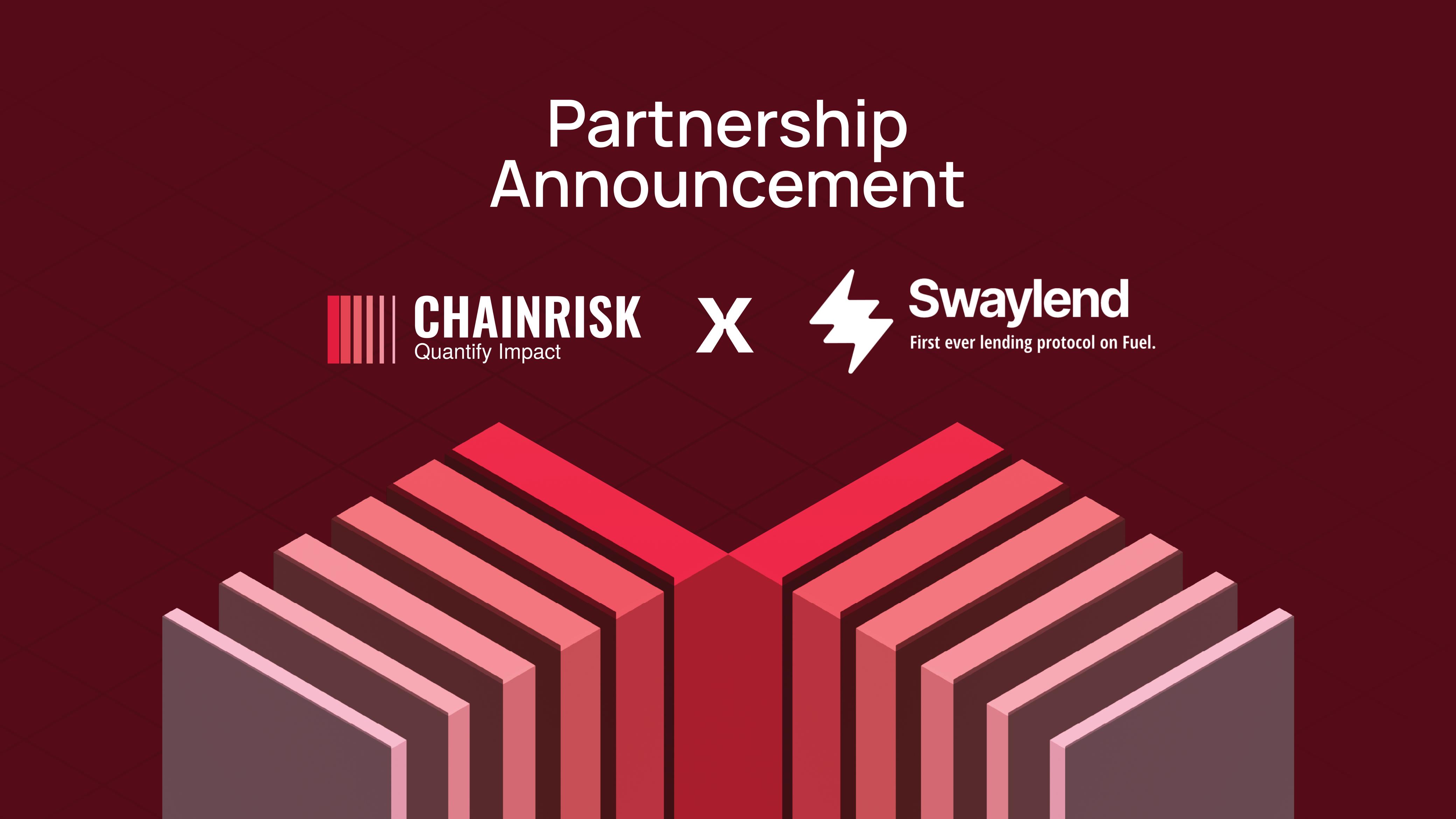
Chainrisk & Joule Finance Partnership Announcement
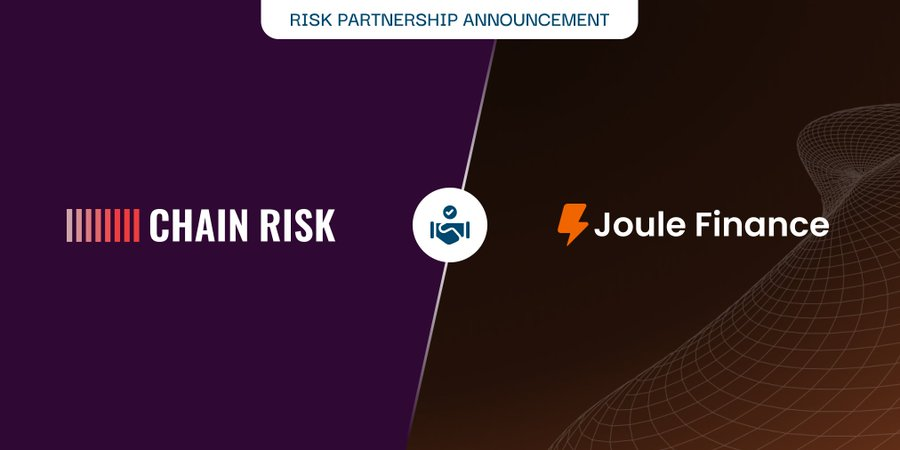
This partnership announcement reveals an exciting collaboration between Chainrisk & Joule Finance. Chainrisk focuses on creating advanced simulation tools to help protocols understand & mitigate economic risks through comprehensive risk parameter analysis & stress testing. This partnership seeks to leverage Chainrisk’s expertise to stress test Joule Finance's mechanism design, provide transparent risk analysis, & establish a unified economic security framework, ultimately enhancing the reliability & stability of Joule Finance’s innovative financial products.
Objectives & Scope of the Collaboration
This integration aims to enhance the economic security & stability of Joule Finance's DeFi offerings by leveraging Chainrisk’s advanced risk management tools. The partnership will focus on testing Joule Finance's Money Market & Liquidity Anchor modules.
These tests will evaluate the performance & stability of these features under various market conditions, ensuring they function as intended & identifying any potential vulnerabilities. Chainrisk’s platform will stress test the mechanism design of Joule Finance’s protocol. Stress testing involves simulating extreme or adverse market conditions to assess how the protocol responds & identify any weaknesses that could be exploited or lead to failure. One of the key aspects of this partnership is the commitment to transparency.
Chainrisk will provide publicly available analysis & research based on the results of their simulations & tests. This information will help the Joule Finance community & other stakeholders understand the protocol’s risk profile & performance under different scenarios.
Stress Testing & Simulations
The proposed risk tooling areas are designed to provide comprehensive & granular control over the various risk parameters associated with Joule Finance markets. By implementing a robust set of risk parameters, Chainrisk aims to ensure that the Joule Finance protocol can operate smoothly & securely, even under adverse market conditions.
Risk Parameters for Joule Finance Markets
These parameters include factors such as collateral requirements, lending & borrowing limits, interest fees, & liquidation processes. Each parameter plays a critical role in maintaining the balance between risk & reward within the protocol, preventing excessive leverage, & ensuring that the protocol remains solvent & resilient.
- Collateral Factor: This parameter determines the maximum amount of assets that can be used as collateral for borrowing. It is a safety measure to ensure that borrowers do not take excessive risks.
- Max Lend: This sets the upper limit on the amount of assets that can be lent out by a single user or entity, helping to manage liquidity risk.
- Max Borrow: Similar to Max Lend, this parameter caps the amount a single user or entity can borrow, preventing over-leverage.
- Efficiency Mode: A mode designed to optimize the use of assets & liquidity within the protocol, ensuring that resources are used in the most efficient manner.
- Interest Fee: The fee charged on borrowed amounts, which incentivizes repayment & ensures the protocol earns revenue.
- Liquidation Factor: This factor determines when a borrower's position is deemed under-collateralized & subject to liquidation to protect the protocol’s solvency.
- Repay Factor: The rate at which borrowed amounts need to be repaid, influencing the borrowing dynamics within the protocol.
- Liquidation Bonus: A reward given to liquidators for taking on the task of liquidating under-collateralized positions, ensuring prompt action to maintain protocol health.
- Liquidation Fee: The fee charged during the liquidation process, covering the costs associated with liquidating assets.
- Base Borrow Rate: The initial interest rate charged on borrowed assets, providing a baseline for borrowing costs.
- Borrow Multiplier: A factor that increases the borrow rate based on utilization rates, helping to manage demand & supply within the lending market.
- Jump Multiplier: This multiplier kicks in under high utilization scenarios, dramatically increasing the borrow rate to prevent over-borrowing.
- Jump Utilization: The utilization rate threshold at which the jump multiplier becomes active, serving as a risk control measure.
- Lend Points Per Day: Points awarded to lenders based on their daily activity, potentially used in reward mechanisms.
- Borrow Points Per Day: Points awarded to borrowers based on their daily activity, encouraging consistent borrowing practices.
- Multiplier Bps: Basis points used in various calculations to fine-tune risk parameters & ensure precise risk management.
Coverage of Base & Collateral Assets
Additionally, the coverage extends to all major base & collateral assets used within the Joule Finance ecosystem, such as APT, amAPT, stAPT, USDC/USDT, WETH, WBTC, & various liquidity-related tokens (LRTs).
- APT (Aptos): The native token of the Aptos platform, used for various transactions & as collateral.
- amAPT (Aptos Market Token): A token representing a market position in Aptos, used in various DeFi operations.
- stAPT (Staked Aptos): A token representing staked Aptos assets, providing staking rewards & liquidity.
- USDC/USDT (USD Coin/Tether): Stablecoins pegged to the US dollar, used for stable & predictable transactions.
- WETH (Wrapped Ether): An ERC-20 token representing Ether, allowing it to be used in DeFi applications on platforms that support ERC-20.
- WBTC (Wrapped Bitcoin): An ERC-20 token representing Bitcoin, facilitating its use in DeFi protocols.
- LRTs (Liquidity-Related Tokens): Various tokens such as eETH, rsETH, ezETH, representing different forms of liquidity & staking derivatives.
The risk coverage & tooling provided by Chainrisk to Joule Finance encompass a wide array of parameters & assets, ensuring robust risk management & protocol security. By addressing key risk areas & implementing detailed risk parameters, the partnership aims to fortify the stability & transparency of the Joule Finance protocol in the rapidly evolving DeFi landscape.
Economic Audit Report
The Economic Audit Report is a comprehensive review conducted by Chainrisk to assess the economic security & risk parameters of the Joule Finance protocol. This process involves several key steps:
- Initial Analysis: Chainrisk begins with an initial assessment of the Joule Finance protocol, focusing on its current risk parameters & market behaviors.
- Scenario Testing: Utilizing their cloud-based, agent- & scenario-based simulation engine, Chainrisk creates various market scenarios to stress test the protocol. These scenarios are designed to mimic adverse market conditions to observe how the protocol would respond.
- Data Collection: Throughout the testing, data on the protocol’s performance, risk parameters, & potential vulnerabilities are collected.
- Analysis & Interpretation: The collected data is analyzed to identify potential risks, inefficiencies, & areas for improvement.
- Reporting: The findings are compiled into a detailed report that outlines the economic health of the Joule Finance protocol. The report includes recommendations for improving risk parameters & ensuring the protocol's resilience.
The Economic Audit Report aims to provide the Joule Finance community with a clear understanding of their protocol’s economic stability. The expected outcomes include:
- Identification of critical risk areas & recommendations to mitigate them.
- Enhanced transparency & confidence in the protocol’s risk management strategies.
- Data-driven insights to support the continuous improvement of the protocol’s economic security.
Chainrisk's simulation platform is a versatile, protocol-agnostic tool designed to test various DeFi protocols' risk parameters & stability. This enables comprehensive testing of new features & assets, offers insights for optimizing risk parameters, prepares projects for potential market adversities, & streamlines the overall testing process, making it efficient & resource-effective.
Conclusion
Chainrisk is committed to expanding its support & services to more DeFi protocols. The goal is to create a robust ecosystem where economic security is a priority for all projects. By doing so, they aim to contribute to the overall stability & growth of the DeFi space. Through continuous innovation & collaboration, Chainrisk aims to push the boundaries of DeFi economic security. By simulating conditions such as market crashes, high volatility, & other stressors, the platform helps projects identify potential vulnerabilities & areas for improvement. This proactive approach ensures that protocols are better prepared to handle real-world adversities, thereby enhancing their long-term resilience & security.
About Joule Finance
Joule Finance is a prominent DeFi platform serving as the first Liquidity Hub on the Aptos blockchain, known for its high performance & scalability. It offers innovative financial products such as the LRT bridge, money market, & composable liquidity anchors, providing users with flexible liquidity solutions. The platform supports a range of base assets, including APT, tokenized versions amAPT & stAPT, stablecoins USDC & USDT, wrapped assets WETH & WBTC, & various liquidity tokens like eETH, rsETH, & ezETH.
About Chainrisk
Chainrisk is a comprehensive risk management platform focused on the DeFi sector. It aims to identify & mitigate economic risks associated with DeFi protocols. Chainrisk provides a suite of tools & services designed to stress test DeFi protocols under various market conditions, using agent-based & scenario-based simulations. This helps uncover potential economic exploits & vulnerabilities within these systems before they can be exploited maliciously.











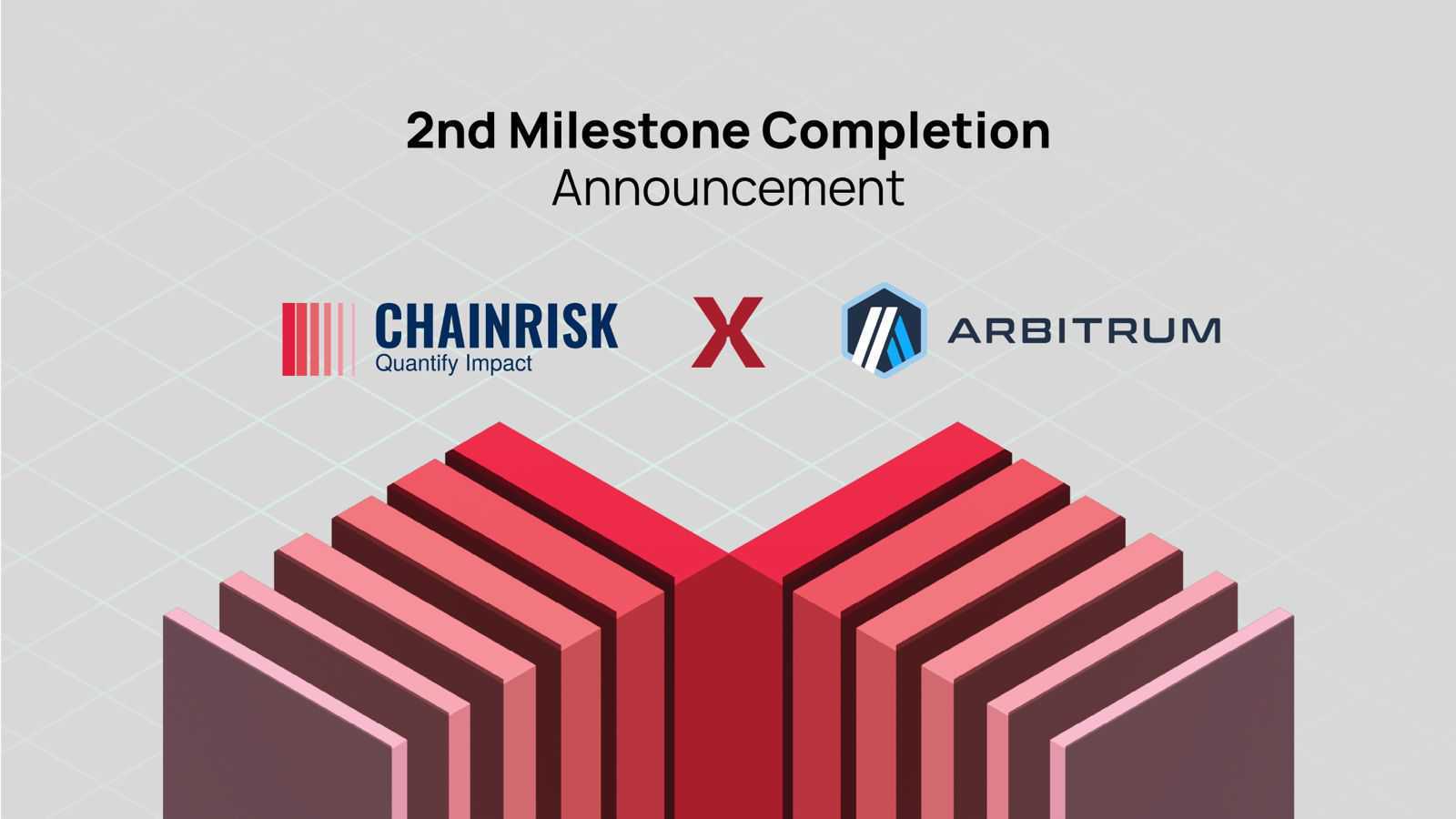
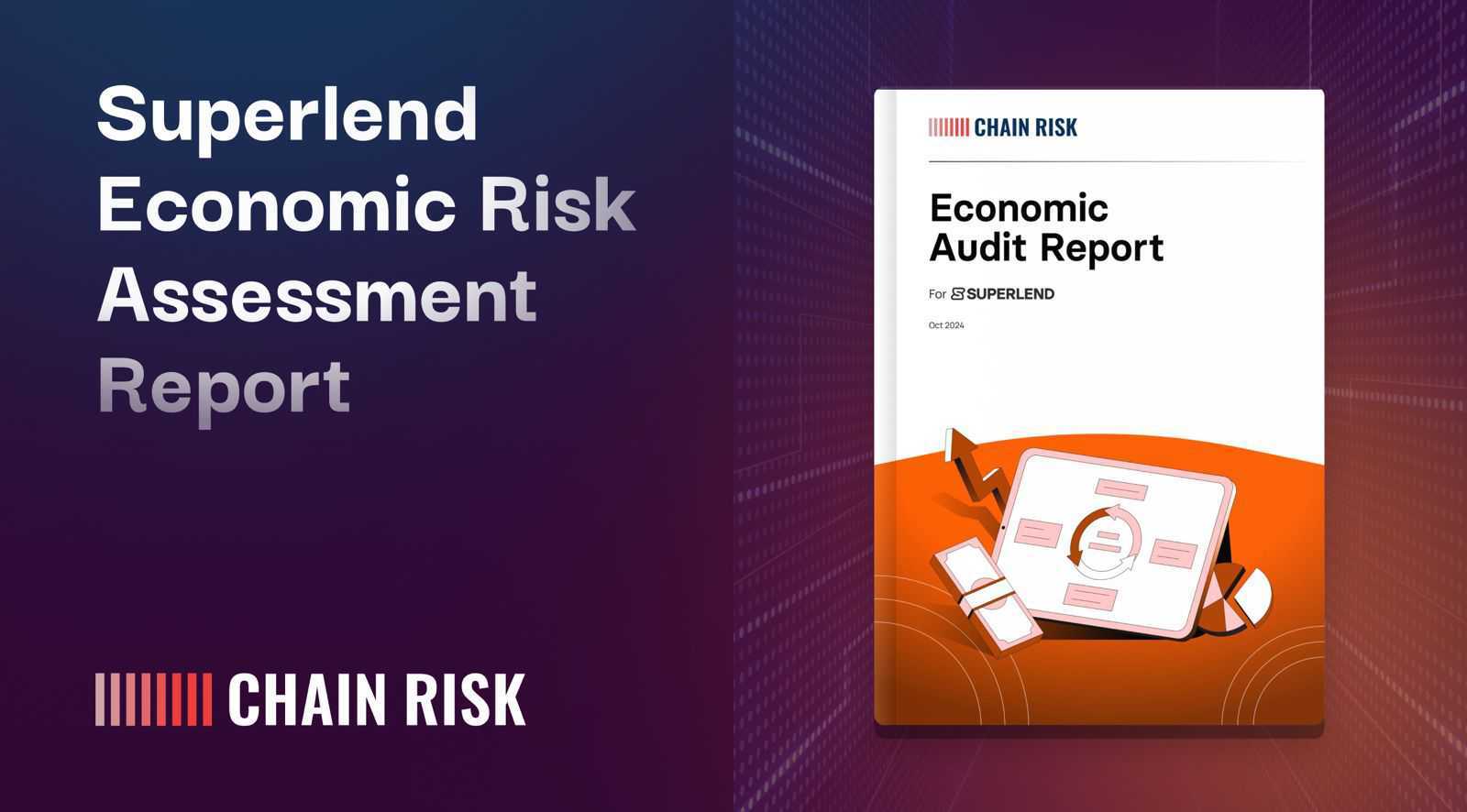
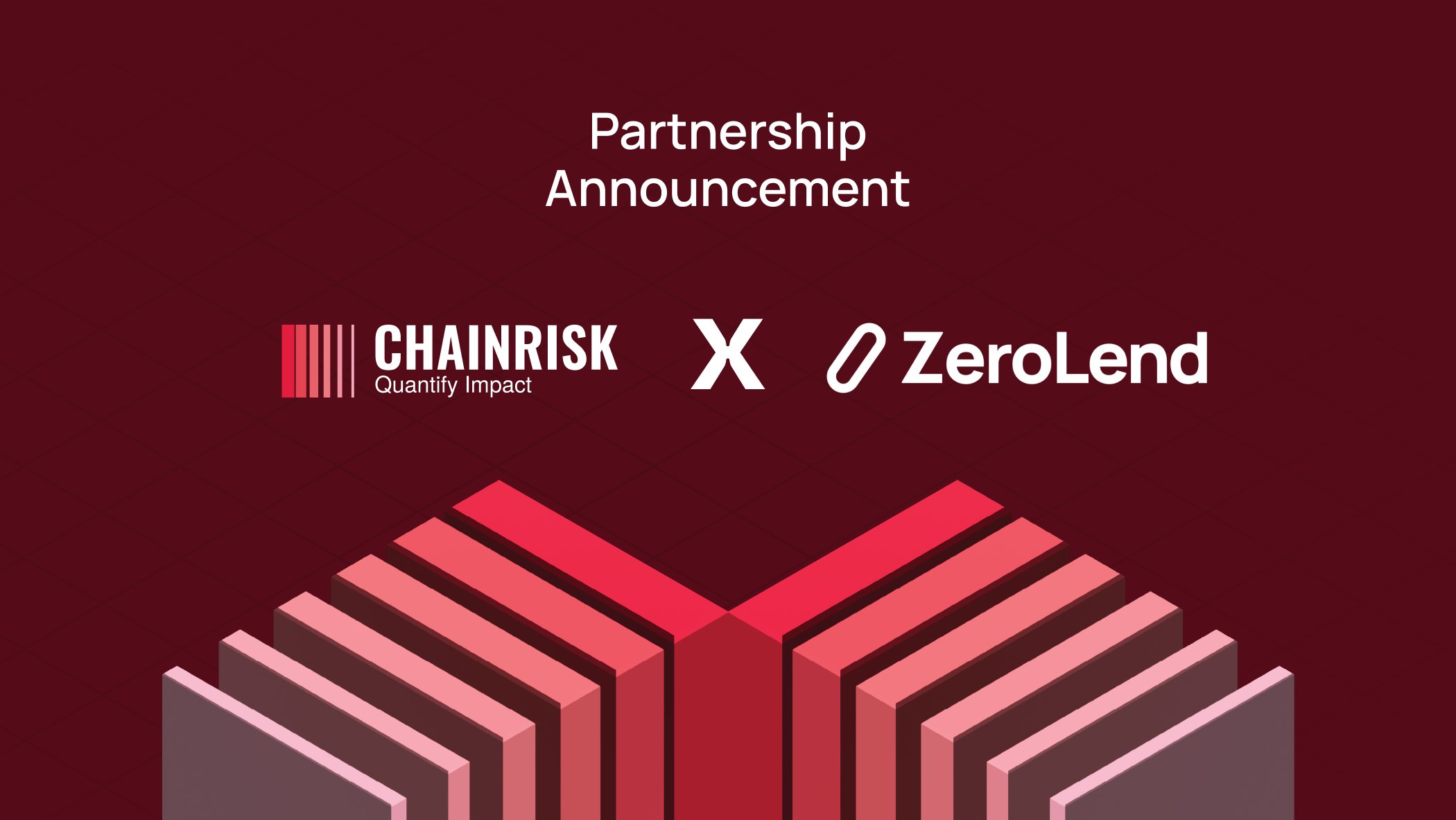

.svg)

.svg)
.svg)
